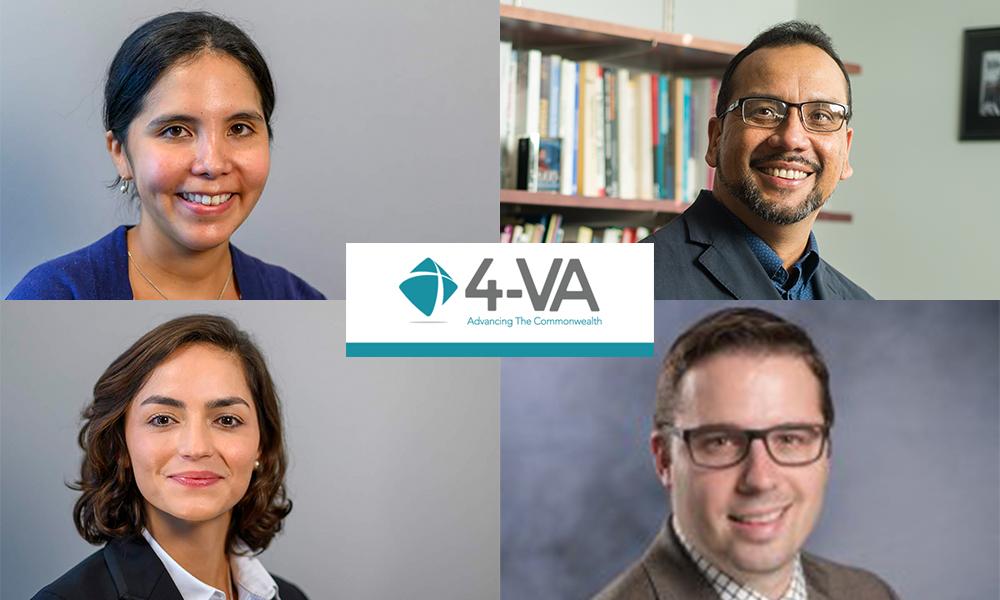JMU professors receive 4-VA grant to study Spanish-speaking communities' COVID experiences
News
Diana Galarreta-Aima, Carlos Alemán, Andrea Martinez Gonzalez, and Tobias Reynolds-Tylus have received a 4-VA grant for their project on “COVID-19 and Central Shenandoah Valley Spanish-Speaking Communities: Exploring Impact and Perceptions of COVID Toward Enhanced Rapid Response Health Communication and Care.” Galarreta-Aima is a professor of Spanish. Alemán, Martinez Gonzalez, and Reynolds-Tylus are professors of Communication Studies.
Alarmed by the fact that Latinos comprise 10% of Virginia’s population and 45% of the state’s COVID-19 cases, 35% of COVID-related hospitalizations, and 11% of COVID-related deaths, their project will explore perceptions and experiences of Virginia Latinos regarding COVID-19. The team of researchers has already begun collecting survey data from Virginia Latinos regarding perceptions of COVID, its vaccines, and access to information on the pandemic, and will begin coordinating with Latino community partners of the Shenandoah Valley to promote English and Spanish focus group interviews with local adult Latinos.
Alemán emphasized that Latino populations throughout Virginia, and notably of the Shenandoah Valley, are incredibly diverse in language and literacies, country of origin, residency status, socio-economic status, and other factors. Further, where Latinos work and live, whether that be urban or rural, vary greatly in developed community and networks, feelings of inclusion, and access to health care. These many differences affect how Latinos are experiencing the COVID-19 pandemic, the recommended protective actions like mask wearing, social distancing, and vaccinations, and where they access health information.
The quantitative and qualitative data from these initial studies and subsequent research will provide useful information about health disparities within Virginia’s Latino communities, provide a basis for making recommendations on how to improve the health of Latino populations, and promote collaborative communication among government agencies, community organizations, and healthcare providers.
The research team brings together faculty with different disciplinary backgrounds, methodological skillsets, and local, national and global research experience. As the project continues to develop, they will be collaborating with community partners and local non-profit organizations that serve Latinos so as to identify and include experiences often overlooked in large scale research of public health.
The project also provides opportunities for student engagement. Undergraduate students in the medical Spanish program will have opportunities to help develop promotion and training materials, while research certified graduate students of the communication and advocacy program will be invited to participate in the team’s discussions of data collection and analysis.
A central goal of the project is to learn from the COVID-19 crisis to prepare for the next health crisis by gathering information on the Latino communities’ experiences with COVID-19 and building connections with community partners.
